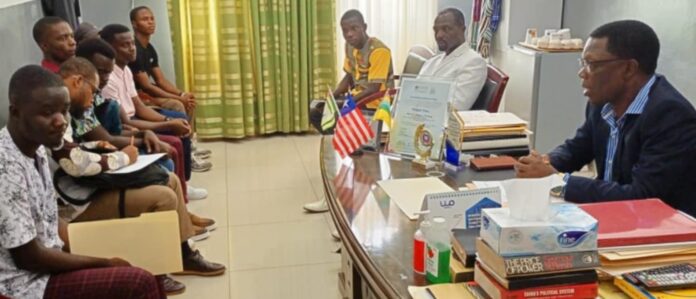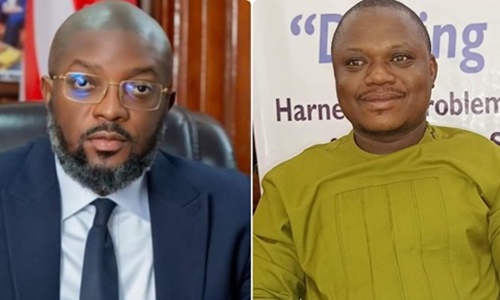MONROVIA, OCTOBER 8, 2024 – During a live interview on ELBC Radio, U.S. Ambassador to Liberia Mark C. Toner shed light on the high visa rejection rates for Liberians, clarifying that the issue stems from visa overstays rather than any personal vendetta against Liberia. Speaking on Monday, October 7, Ambassador Toner revealed that over half of Liberians traveling to the U.S. on tourist visas fail to return within their allowed time, contributing to the high rate of visa denials.
“More than 50 percent of Liberians who enter the U.S. on a tourist visa do not return within the prescribed period,” said Toner. He explained that when individuals arrive in the U.S., their visas are stamped with a departure date, but many choose to overstay, resulting in what the U.S. government terms “overstay violations.”
The ambassador emphasized that this trend poses a significant issue, particularly for those looking to travel on temporary visas. “The responsibility lies with Liberians to prove their honesty when applying for a tourist visa,” he said. When asked why the U.S. does not focus on specific offenders rather than implementing widespread visa rejections, Toner explained that this is simply how the system operates. He noted that U.S. consular officers scrutinize every application, taking into account the high overstay rates when assessing whether applicants will comply with their visa terms.
Ambassador Toner urged Liberians to return within the period specified on their visas to help reduce the overstay rate and improve their chances of future visa approvals. “If Liberians return home on time, the current overstay rate, which exceeds 50 percent, could decrease to 40 or even 30 percent,” he added, noting that this would ease visa approval processes for Liberians in the future.
Toner also reiterated a message he shared with the University of Liberia’s recent graduates, encouraging them to stay and invest in their country. “Yes, travel if you can, but don’t spend your life in the United States. Spend it here, contributing to Liberia’s development,” he said.
The ambassador stressed that the high visa refusal rate should not be seen as a reflection of Liberia-U.S. relations, which he described as strong. “This is a legal process focused on controlling immigration and is separate from our bilateral relationship,” he explained.
Ambassador Toner concluded by stating that the U.S., like many other countries, places great importance on controlling its borders and ensuring that visa regulations are followed strictly, emphasizing that it’s not a personal issue but a legal necessity.







